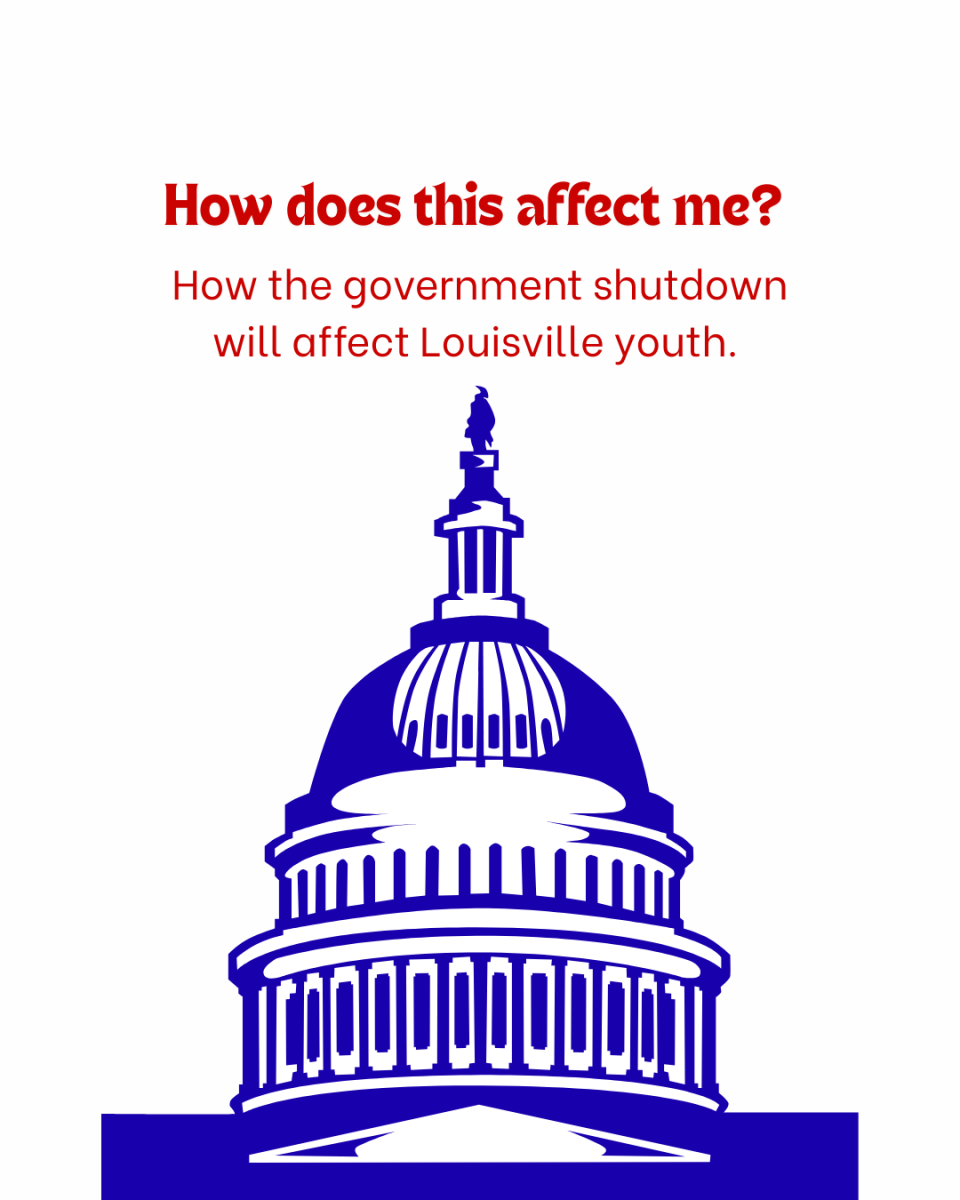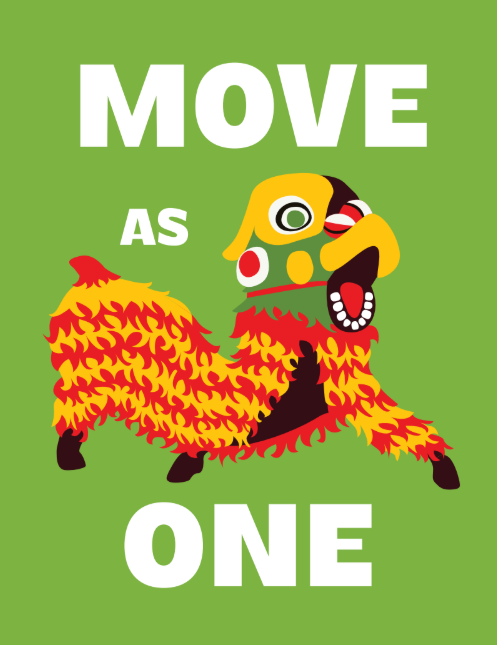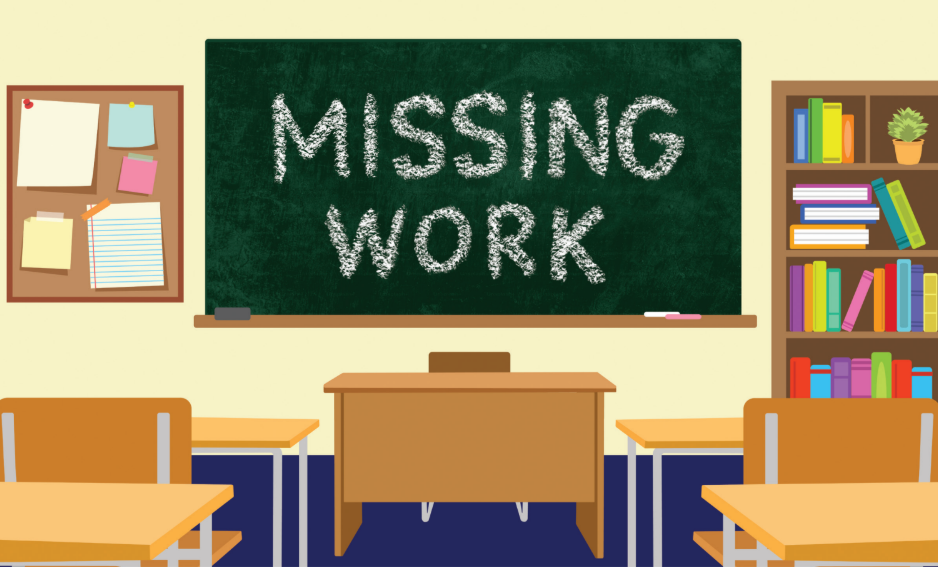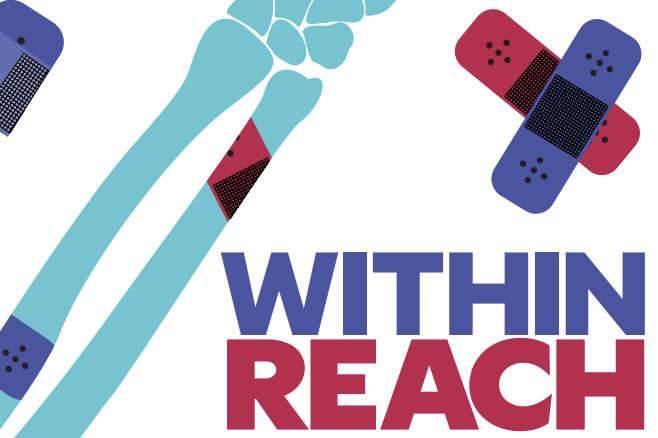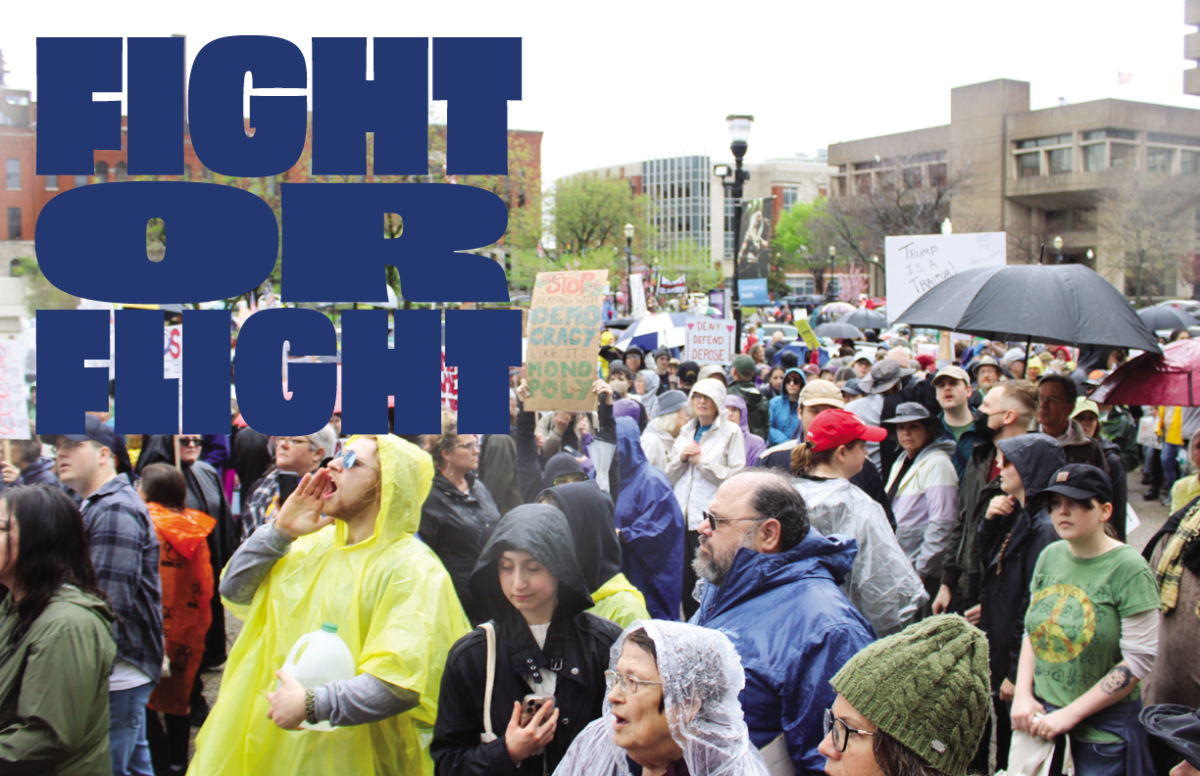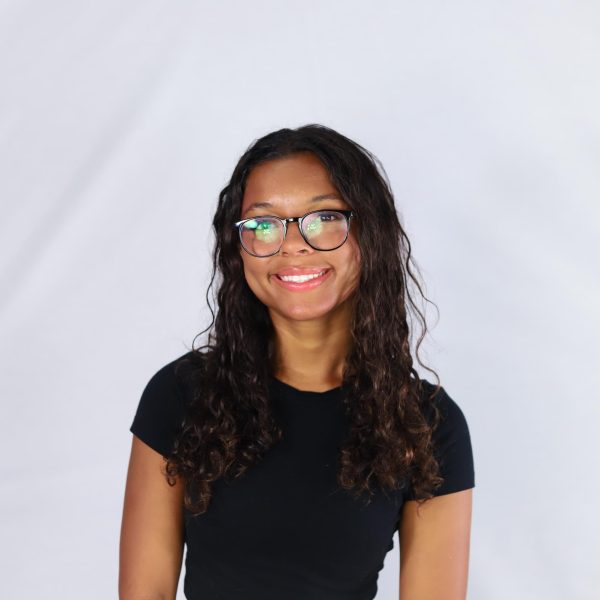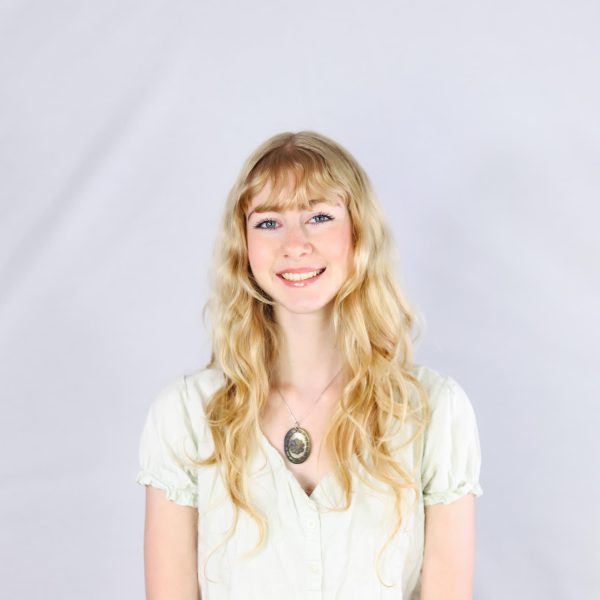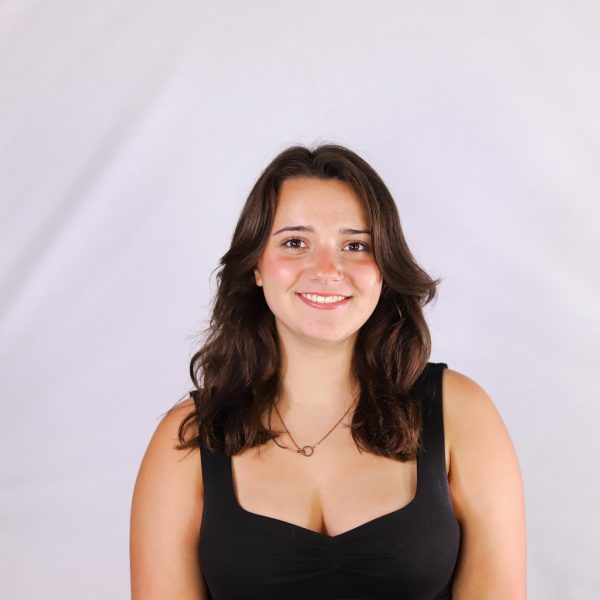I stood outside of the club, shifting my weight from foot to foot, a coil of anticipation winding tight inside of me. Finally, after an eternity of inching up through the line, the bouncer let my friends and me inside the dimly lit hall. He scanned our tickets for the show and grabbed my arm, swiftly marking a thick “X” across my left hand and nodding for us to head inside. We had arrived at Stabfest.
As we wandered throughout the venue, a friend from school approached me, asking when I started going to shows. I was caught off guard — didn’t everyone go to concerts? Even though this one was smaller and more alternative, a concert is a concert, right?
But as the lights dimmed and the performance began, I understood the question. I understood why everyone I talked to referenced the show’s goers as a “scene,” rather than a crowd or fans.
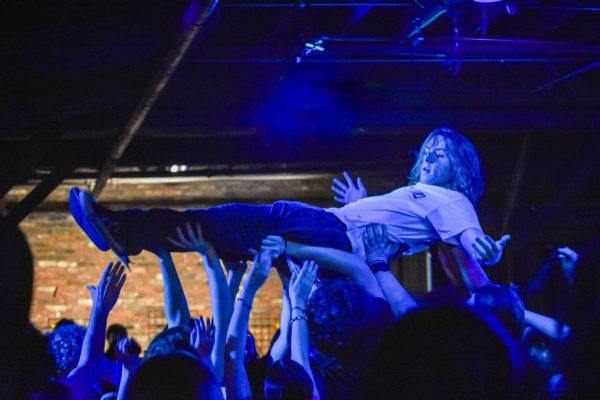
When the guitar riffs reached their crescendo, people of all different ages and genders began to dance and ram into each other with reckless abandon, or more simply, “mosh.”
I’d never seen anything like it before. People were hitting the ground and slamming into the stage and surrounding furniture. It looked like a scene of chaos and aggression, but as soon as someone got knocked down, they were laughing, and someone was there to pick them back up.
When I walked into the Pape & Nutt show a week later, however, I felt hesitant. I was there to watch a country and rock concert and stick to the wall as I listened, but I hadn’t made it a few steps into the venue before being greeted by friendly faces.
Two beautiful, wide-smiled girls dressed chicly in jeans and sweaters welcomed me into the space. These girls were Sandy Butler, 17, and Rosalee Flack, 17 — both juniors at Sacred Heart Academy. They asked me for $20 as the cover charge.
Honestly, I was surprised at the price; I hadn’t expected to pay for a startup band.
“We’re here to raise money for those who don’t have a voice to advocate for themselves,” Flack said. “We hope to raise over $15,000 tonight.”
I began to put the pieces together — this was more than just a concert for a good time.
Butler and Flack are students of philanthropy for the Leukemia and Lymphoma Society (LLS), a nationwide nonprofit working to fund research, advocate and provide education for people with blood cancer. In the Louisville chapter, Butler and Flack are part of a team working to become Student Visionaries of the Year, a leadership development program for high school students under LLS.
Henry Pape, 17, and Addison Nutt, 16, both juniors at Saint Xavier High School and the namesake for the Pape & Nutt concert, are also involved in the program. In fact, they came up with the original idea for the LLS event.
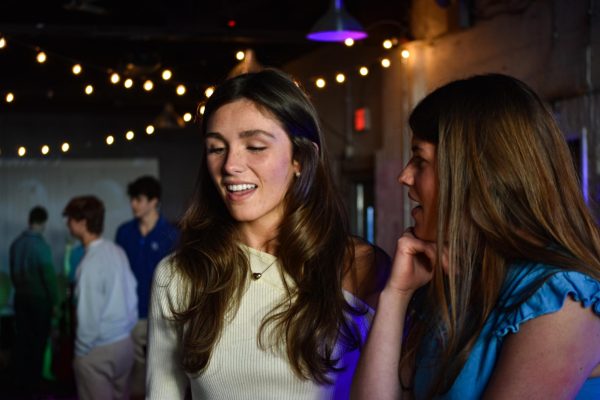
“One of the biggest things about LLS is giving kids the opportunity to reach out and have experiences coming up with their own ideas,” Flack said. “So they brought that idea to us and we were like, ‘let’s do it.’”
The concert was one of many fundraising opportunities LLS’ students host for the organization, stemming from a wish to both raise money and play the music they love. The point of the music is to bring people together for something bigger than themselves.
We are in the middle of a global shift toward streaming services and virtual concerts. With this, the role of small, live shows becomes more crucial than ever. While major events and online platforms dominate the mainstream music scene, local venues and artists of Louisville must remain irreplaceable.
Major music festivals are always a hot commodity in our city. In September, when Bourbon & Beyond and Louder Than Life roll around, it takes over all aspects of my life. Whether I choose to buy a ticket or not, my conversations with friends are littered with what they’re wearing, who they’re going with and what artist they’re most excited to see.
This is an aspect of Louisville I hold close to my heart, counting myself lucky to be able to live in a city where big-name artists choose to bring their shows year after year.
However, there is an underrecognized heartbeat within Louisville, one you might not even realize is there. Whether it be alternative grunge artists or soon-to-be country music stars, the smaller shows and select audiences make Louisville’s music scene unique.
Artists like Jack Harlow, a rapper, Tyler Childers, a country singer and Cage The Elephant, a rock band, all come from the Bluegrass State.
However, they didn’t start their careers flying out to cities in California and New York to perform; all the artists that represent Kentucky began in humbler places around the state. They connected with their hometown first, just like the local artists playing music around our city right now.
For both performers and fans, smaller shows breed connection. Despite the stark differences in the ambience, energy and sound of the two concerts I attended, there was a common thread when talking to the crowd throughout the shows: they all have found a community for themselves.
Stabfest was based on acceptance.
“I love our Louisville scene, I love our hardcore scene,” said Eli Yates, 14, an eighth grader at the J. Graham Brown School and a regular attendee at events like Stabfest’s concerts. “I feel so welcomed and at home as a trans kid in the scene, it’s awesome.”
Yates sat perched between two friends on a low step outside the concert doors. The thrashing music inside seemed to be just a background hum to their group’s giggly conversation — and the obvious bond between the friends was no coincidence.
“I met my closest friends at the scene,” Yates said, gesturing to Jewel Green, 14, an eighth grader at Western Middle School. “We met at a show.”
The two first encountered each other last November at the Pissed On concert at Magnolia Bar, or Mag Bar. Since then, it has become a weekly occurrence to find and meet up at different shows.
“If it wasn’t for being in the scene, I probably wouldn’t be as close with a lot of my friends,” Green said.
I found myself momentarily surprised. After seeing the chaos within the mosh pit, the wall-shaking music and bold alternative clothing, I didn’t expect their friendship to mirror some of my own.
But, as I stood there, I realized the scene wasn’t about rebellion for the sake of it or to push the typical southern Kentucky norm. It wasn’t formed to defy anyone at all — it was made to bring diverse groups of people together with a shared love for music.
“The hardcore scene is looked at as so violent, but I’ve never felt more at home,” Yates said.
For Pape and Nutt, their friends and family are the ones who encouraged them to create their own concert community.

“Live music should be a bigger part of everyone’s lives,” Pape said. “That’s why we’re here.”
I had the opportunity to talk to the bandmates before their show. As we spoke, I noticed their friends and family passing by to wave at them, looking just as excited as they were.
Soon I found out why: this would be the first time either of them had played in front of a paying audience.
When it came to deciding what genre of music to perform, the answer was pretty straightforward.
“I’ve listened to country and rock my whole life, so it was a no-brainer,” Nutt said.
Outside of playing music, Pape and Nutt are also proud members of the LLS team with Butler and Flack.
“We just want to have fun and show everyone a good time and raise money for cancer research,” Nutt said.
And they did exactly that. The duo’s energy was exactly what the show needed, both smiling ear to ear as they sang and played.
They had the occasional mishap, of course — Nutt forgot a few words of a Tyler Childers song and a string on Pape’s guitar snapped in one of the beginning songs of the set. But the crowd was too busy swaying to the music to notice, and Pape and Nutt kept their focus on performing for their peers.
Their happy demeanor spilled out to the crowd throughout the show. It seemed like the whole venue was singing and dancing along to the familiar songs they played.
Even though the crowd was made up of a lot of their personal friends, family and acquaintances, I didn’t once feel out of place. There was an unspoken sense of belonging that ran through the concert enjoyers and performers.
Jaden Wagner, 18, a senior at duPont Manual High School and a house music DJ and artist by the name “GudGroove,” felt this spark of belonging the first time he performed at a casual party.
He had a set track: he was excited for his future, his high school baseball years had been going well and he knew he wanted to play in college.
However, while visiting his friend’s brother’s fraternity at Western Kentucky University, his future goals changed as soon as he stood in front of a crowd.
“They needed someone on aux at the frat party, so I took it and the rest is history,” Wagner said.
After this experience, he started to perform at house parties, then college events.
But for Wagner, no dream is too big. This May, he’ll be flying to Columbus to perform at a silent disco festival.
“When I’m looking forward to one of my shows, I look forward to seeing my friends there and having a good time,” Wagner said.
For Wagner and many other artists, it’s not just about the performance — it’s about the people. Every show is an opportunity for connection.
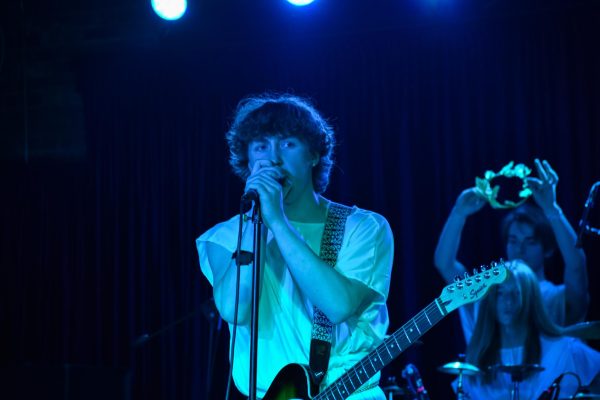
crowd into the Stabfest concert on March 14. Cheers soar as he asks the crowd if they are ready for the band’s performance. (Photos by Loren Williamson)
In a time where everything is so easily digital, it’s easy to forget the value of experiences in person, especially in music, where apps like Airbuds or Spotify’s Jam Session feature make it easy to listen together virtually. I use them with friends constantly to bond and share the music we love.
However, through these concerts, I’ve found that the raw energy of a show can’t be replaced over a phone call or streaming app. There’s something intimately special about standing under one roof between artist and listener from all different walks of life and being able to listen together.
This form of community shouldn’t be lost on our city. Louisville is a uniquely urban area situated in the north of the state, but more southern of our country, inevitably making it a melting pot of diversity in all arts — especially music. Big-name artists have come out of our city in every genre and visit Louisville to perform every summer and fall for our festivals.
Watching these worlds of music overlap in front of me in real time reminded me that every fan is looking for the same thing: a connection. Whether that be affirmation in themself, charity outreach or friendship, music is a bridge between us all. So go out and enjoy it, maybe I’ll see you at a show soon!


